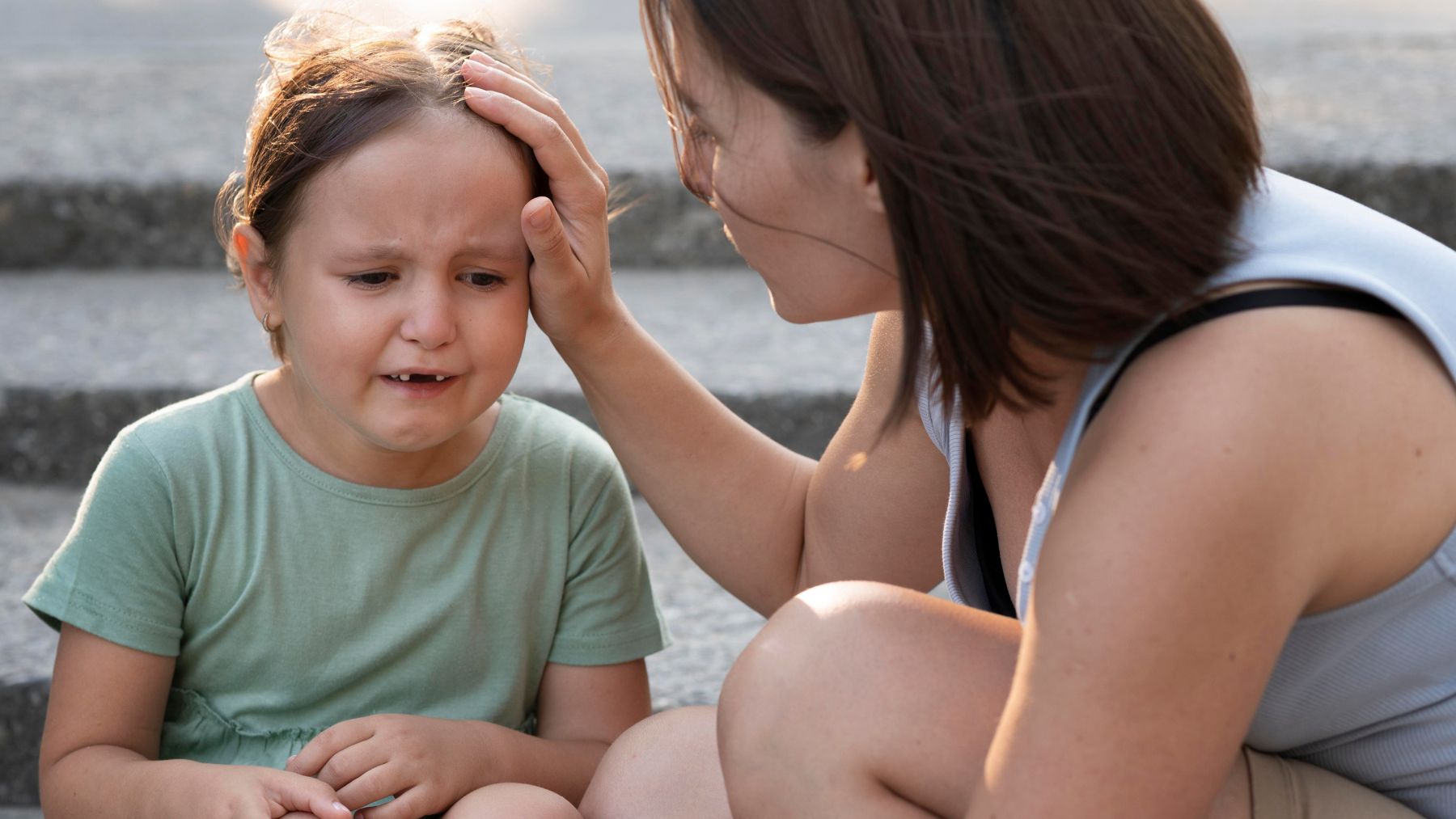When a child gets hurt, feels upset, or faces a difficult situation, most parents instinctively rush to comfort them. The words come out quickly, often before the child has a chance to process what just happened. While the intention is love and reassurance, this automatic reaction might actually create deeper emotional challenges over time.
Parenting coach Reem Raouda, who has studied over 200 children, warns that one specific phrase — used countless times a day in households everywhere — can have lasting effects on a child’s emotional well-being. She explains that although it feels natural to say it, the hidden message it sends can shape how kids understand, process, and trust their own feelings.
What is the most dangerous phrase parents use without realizing it?
According to what Raouda told the site “Make it”, the words many parents reach for in these moments are: “You’re okay.” On the surface, it seem harmless, even kind. But she says they can unintentionally teach children to doubt their own emotions. When a child is visibly upset and hears this, they may think, “If they say I’m okay, then maybe what I’m feeling isn’t real.” Over time, that disconnect can weaken their trust in their instincts.
The phrase can also invalidate a child’s experience when they need support the most. Even if spoken with love, it might be heard as: “Your feelings don’t matter.”This subtle dismissal can send the message that comfort is conditional — available only when they’re calm and easy to handle — which can lead to emotional suppression.
Raouda notes that it also interrupts the body’s natural process of emotional release. Feelings are meant to be acknowledged and processed, but premature reassurance cuts that process short. Instead of learning to regulate emotions in a healthy way, children may begin to avoid them altogether.
Over time, repeated use of phrases like “you’re okay,” “stop crying,” or “don’t be scared” can teach that love depends on emotional control. Without realizing it, parents may be conditioning children to hide their feelings to maintain acceptance — eroding the emotional safety that supports mental health.
The parenting coach also points to the impact on the nervous system. When a child’s emotional expressions are consistently met with dismissal instead of validation, their body adapts to expect disconnection. This can make it harder for them to trust others, regulate stress, and feel safe being their authentic selves.
What to say instead
Raouda believes children don’t need instant solutions. “They need to know it’s safe to feel, especially with you,” she explains. In place of “you’re okay,” she suggests phrases that validate emotions and encourage trust:
- “I believe you.”
- “Your feelings make sense.”
- “I’m right here with you.”
- “You don’t have to be okay right now.”
- “I saw what happened. How are you feeling?”
These alternatives do more than comfort. They reinforce the idea that emotions are valid and manageable, helping children grow into emotionally resilient adults.
Raouda emphasizes that breaking the habit takes time. Parents may still say “you’re okay” out of reflex, and that’s fine — the goal is awareness. By noticing our patterns and choosing words that foster connection, we can help children feel seen, heard, and safe.
What seems like a small change in language can have a powerful effect. In a world where anxiety, depression, and disconnection are becoming more common, these moments of emotional safety can be a profound way to protect a child’s mental health — one conversation at a time.

